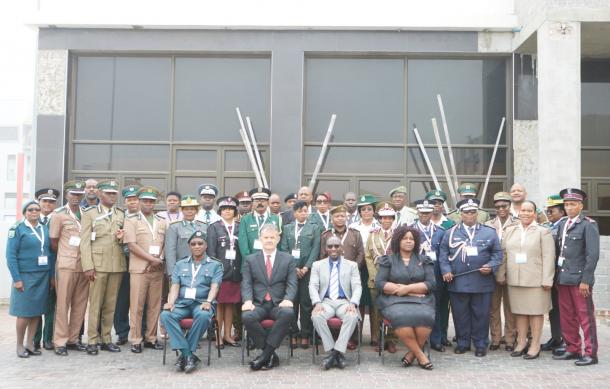
There is a growing recognition that places of detention have become targets for the recruitment of potential violent extremists.
This was revealed at the first-ever regional workshop on preventing radicalization into violent extremism in prisons.
The heads of correctional services and senior officials in the Southern African Development Community (SADC) have gathered at Walvis Bay to discuss matters relating to violent extremism.
Adopted in 2020, an assessment of the security landscape in the region outlines terrorism and violent extremism as one of the security challenges in SADC.
According to these experts, if correctional facilities are not well managed in the SADC region, they could become breeding grounds for violent extremism.
"The goal is to pursue a safer region with a special focus on prevention and readiness to counter violent extremism and radicalization within our correctional, prison, and penitentiary institutions. This is with growing recognition that places of detention have become targets for recruitment of potential violent extremists or radicalization using all types of methods," Etienne Maritz, the Executive Director in the Home Affairs, Immigration, Safety, and Security Ministry, said.
Commissioner General Raphael Amunyela, Head of the Namibia Correctional Service, also spoke at the event.
"You find people who want to train inmates and recruit them to join their processes or programs; they come to countries, and most of the time, you find that they come there and are arrested for maybe not having proper documentation or their passport has expired, and they have no idea at all why they are in the country; then they are taken to the correctional facilities, which is their purpose. They want to be there to start training people. You see, our people are vulnerable; some people are being promised jobs, and they are recruited there."
The four-day workshop at the harbor town will ensure that heads of correctional services in SADC receive training on how to prevent and deal with radicalization.
"We are breaking the barriers by having conversations that we might not have had in our space. But we are also assuring the member states that are here today that SADC will work tirelessly to make sure that as contemporary security challenges come. We will be able to place corrections, prisons, and penitentiary services in their rightful spaces to be able to also raise their hands in contribution to the peace and security agenda," said Kaleboga Moruti, SADC Acting Director of Politics, Defense, and Security Affairs at SADC.
Participants acknowledged that because peace and security have prevailed in most parts of the SADC region, many member states might not have considered putting in place measures to prevent the threat.





